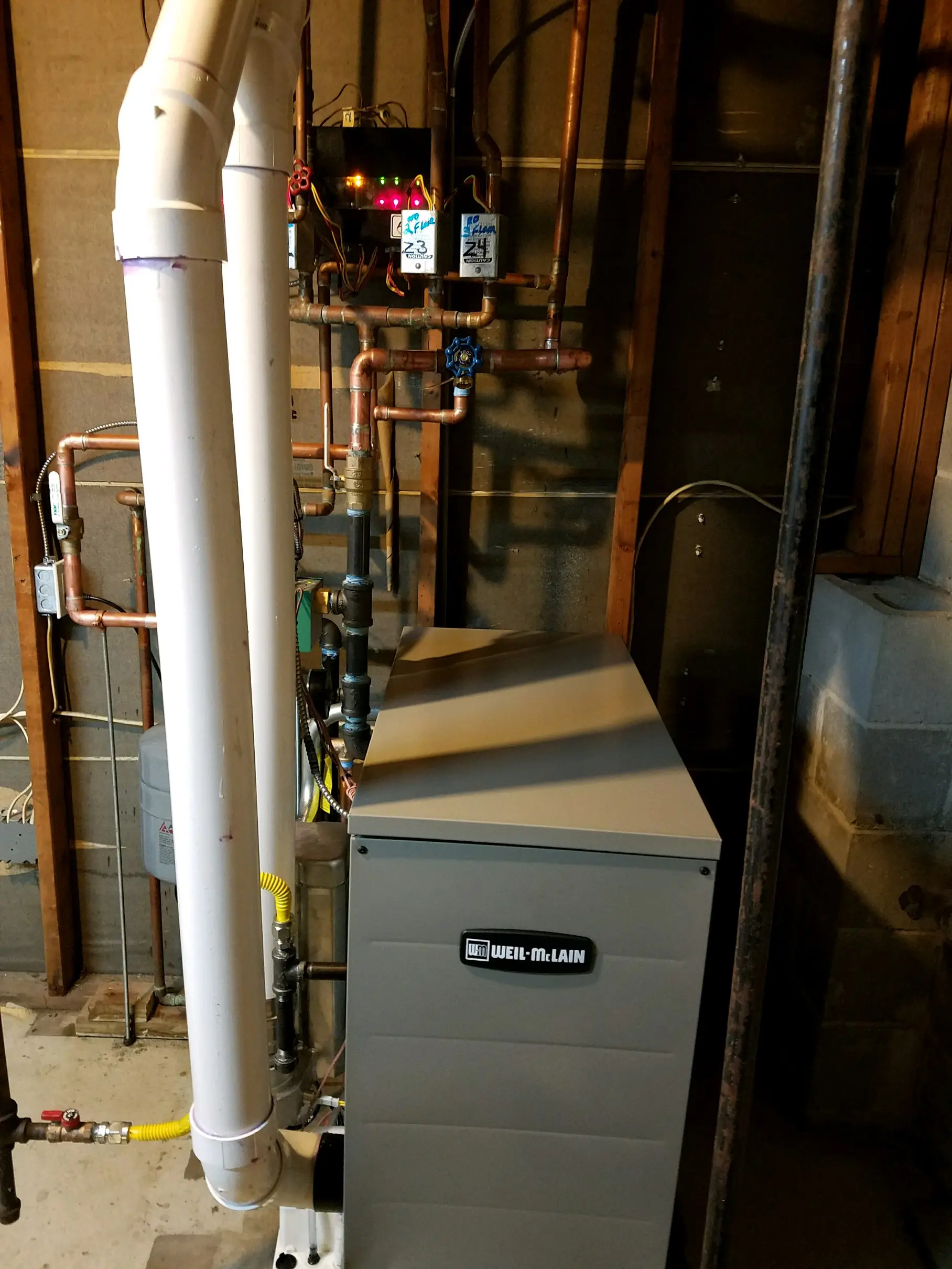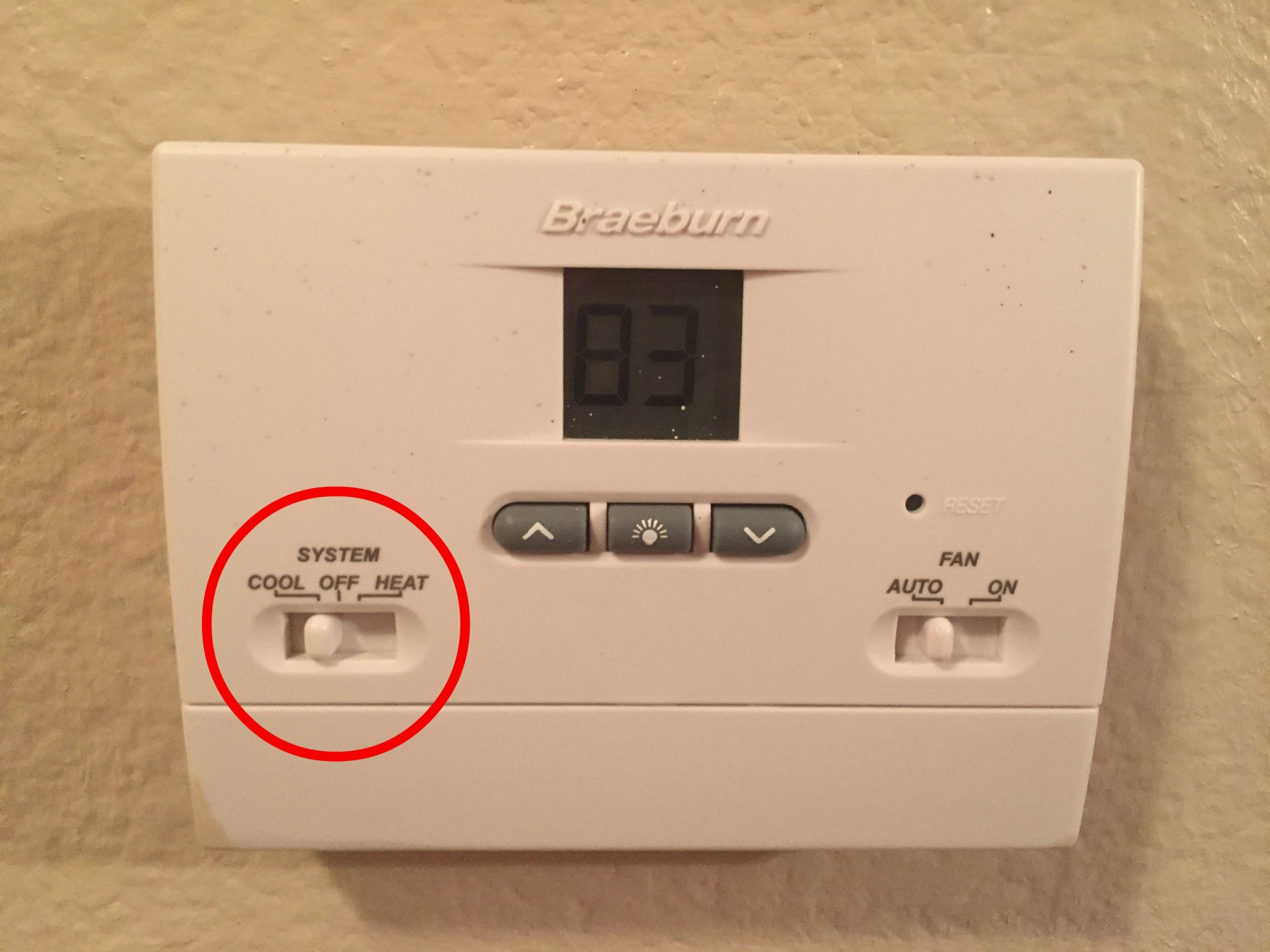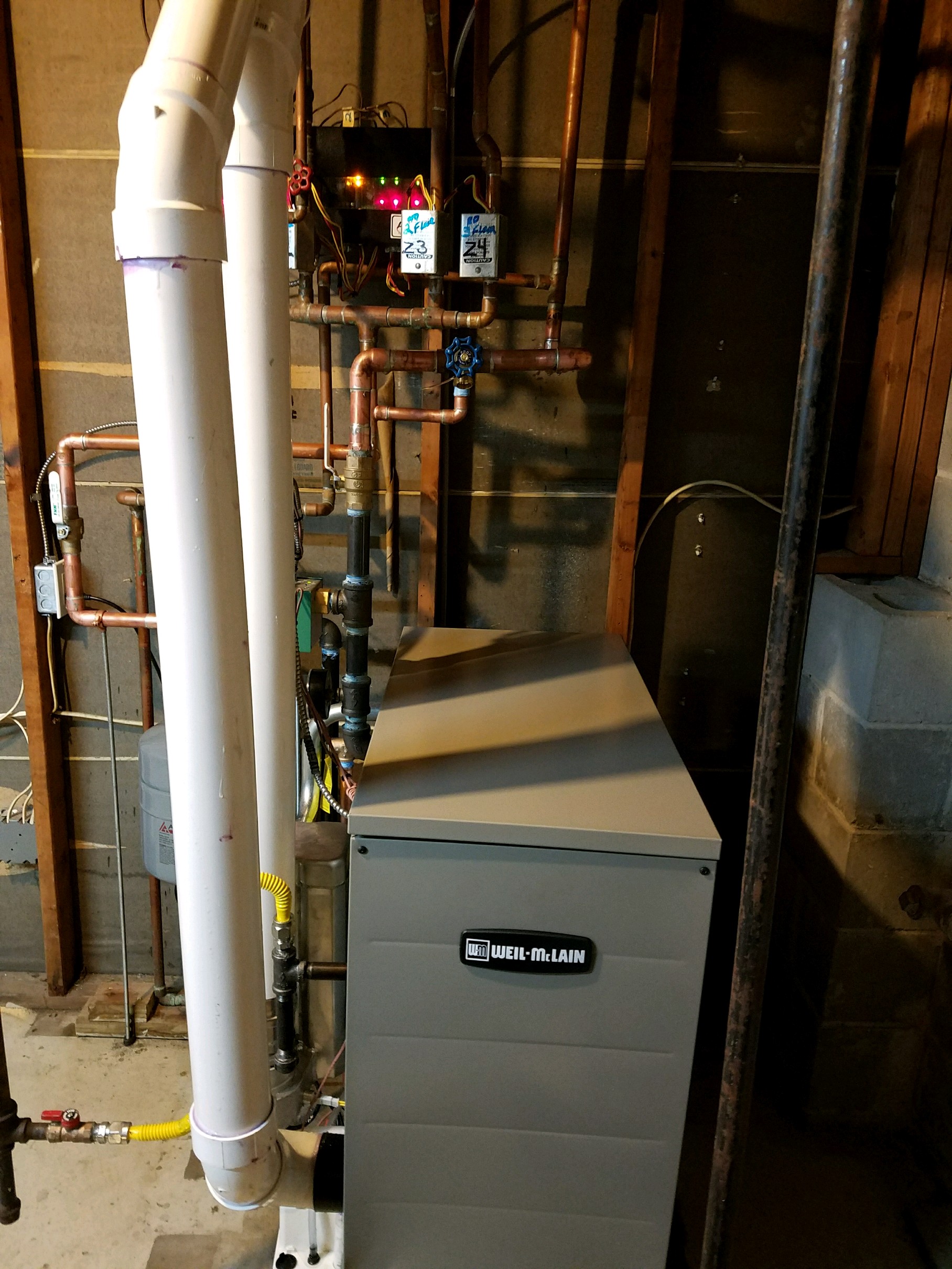Why Is My Gas Boiler Not Turning On? A NJ Tech Answers
November 11, 2024

Have a gas boiler that won’t turn on? That’s going to turn into a chilly problem very fast.
But before you call a professional, try the following DIY gas boiler troubleshooting tips. Check that your:
- Thermostat is set to HEAT
- Thermostat is working correctly
- Boiler’s circuit breaker isn’t tripped
- Gas valve is open (not closed)
Don’t worry. We’ll walk you through each of these steps.
A fair warning, though—if you’ve tried all of these tips and still aren’t getting heat from your boiler, you’ll need a professional to diagnose and repair your boiler.
How to troubleshoot a boiler that won’t start
1. Make sure the thermostat is set to HEAT.
We know it sounds silly but this happens more often than you’d think. To save yourself an unnecessary service call, check out your thermostat before calling a professional. Make sure that the system option is set to HEAT and not COOL or OFF.
For example, the thermostat below is set to COOL, which means the boiler won’t ever kick on, even if the room temperature drops below the set temperature.

If your thermostat is already correctly set to HEAT, continue on to step 2.
2. Make sure your thermostat is working properly.
To test that your thermostat is working correctly, raise your temperature at least 5° higher than your set temperature. Does your boiler kick on? If not, your thermostat might not be working properly and you’ll need a professional to diagnose and fix your thermostat problems.
If the boiler does kick on when you raise the set temperature, there’s likely nothing wrong with your boiler or thermostat. You see, different thermostats are designed/preset with varying “differentials”—which just means how many degrees the room temperature has to drop below your set temperature before the boiler kicks on.
Some thermostats have a differential of +/-1° and others have a higher differential of +/-4°. If you’d prefer for your boiler/thermostat to have a lower differential, contact a tech to come out and reset your thermostat settings.
3. Make sure the boiler’s circuit breaker isn’t tripped.
Yes, even gas boilers need a small amount of electricity to run. Parts like the electronic ignition system and blower motor need electricity to start (and continue running). If any of these boiler components can’t start, the start-up process stops completely.
So, check your main electrical panel. Find the breaker labeled “boiler” (all boilers should have their own dedicated circuit). Make sure the breaker is in the ON position. If the breaker is tripped, push the breaker into the ON position and see if the boiler automatically kicks on shortly afterward.
Note: If the breaker immediately trips again as the boiler tries to start, contact a professional as you likely have a larger electrical problem.
If the boiler’s circuit breaker isn’t tripped, continue on to step 4.
4. Make sure the boiler gas valve is open.
Your boiler has its own gas valve that must be in the open position in order for the boiler to start.
To check that your boiler gas valve is in the open position, locate the gas pipe. This pipe should run alongside the boiler and will have a valve. Make sure that the valve’s lever is running parallel to the pipe (not perpendicular).
A lever that is perpendicular to the gas pipe means that the gas is shut off and is not flowing to the boiler (which prevents the boiler from starting).

Note: If you’re not sure where your gas valve is located, do not attempt this step. Adjusting the gas valve/pipe improperly could result in a dangerous gas leak. Always have a professional handle this step if you’re not familiar with how your boiler works.
Gas boiler still not starting?
If you’ve checked all of our troubleshooting tips above and your gas boiler still won’t start, you likely have a larger problem that requires a professional.
Some boiler problems you might have include:
- Dirty burners
- Bad electronic ignition system
- A bad safety feature
- Wiring issues
Need a professional boiler repair in the New Jersey area?
We can help.
Schedule service
Our techs are experts when it comes to boiler repairs. They’ll be able to inspect and diagnose your boiler quickly. Then, they’ll explain the problem (and even show it to you if possible) and present your repair options.
